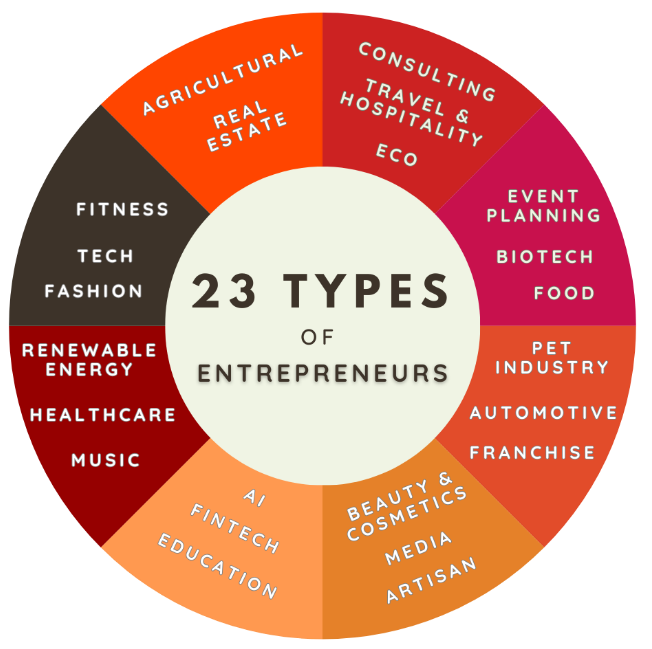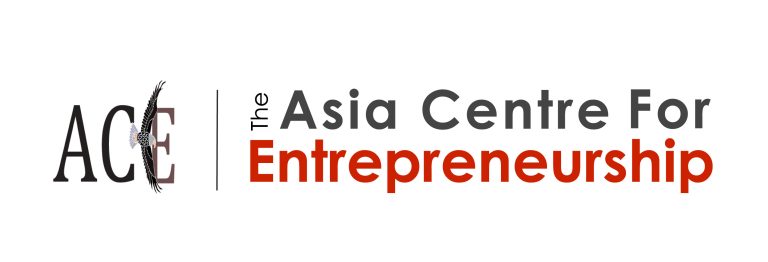Introduction
Established in 2004, the Asia Centre for Entrepreneurship at Binary University is one of the world’s leading centres dedicated to creating innovative and creative Entrepreneurs, using the 7-STEP Binary Entrepreneurship Ecosystem (BEE) Model. Over the last 20years, the ACE has transformed thousands of Youth to become successful entrepreneurs. The ACE Centre Of Excellence offers a unique model of creating Youth Entrepreneurs by combining practical knowledge and skills in Entrepreneurship with Real Business Opportunities offered by successful entrepreneurs who are members in our ecosystem.
The ACE produces 2 types of entrepreneurs namely
❖ Industry – Specific Entrepreneurs for the Tourism, Healthcare, Education, Agriculture, Logistic industries among many others
❖ Technopreneurs with technical skills for these from polytechnics and TVET institutions.
❖ To deliver the above, ACE has developed the ACE Community of Global Entrepreneurs comprising of over 10,500 real entrepreneurs from diverse sectors who provide real business opportunities, knowledge transfer and market access.
Vision
“To be a World-Class Centre for Entrepreneurship Development”
Mission
To nurture successful youth entrepreneurs with integrity and compassion.
Objectives
❖ To create Youth including Women Entrepreneurs for World Market.
❖ To organize courses and training in entrepreneurship.
❖ To publish research findings and case studies.
❖ To provide consultancy services to relevent Agencies on entrepreneurship.
❖ To develop a global network of entrepreneurs under the ACE Communities Network.
❖ To advocate policy changes and provide input to decision makers.
The PROBLEM : Rising Unemployment Among Graduates
The issue of unemployment and underemployment among university and college graduates is indeed a pressing concern worldwide, with its roots deeply entrenched in various socioeconomic factors.
According to the International Labour Organization (ILO), global youth unemployment rates have remained high, with around 16-36% in 2021 and 15.58% in 2022. Africa and the Middle East with youth unemployment rates above 25% are the worst hit regions.
Underemployment, which includes part-time workers seeking full-time employment or individuals working in jobs below their skill level, presents a significant challenge. The World Bank estimates that around 30% of young workers worldwide are underemployed.
- Mismatch between Skills and Job Market Needs.
- Economic downturns, recessions, and slow economic.
- Lack of Job Creation
- Overqualified graduates for the available positions.
- Structural issues within education systems such as outdated curricula, inadequate career guidance, and limited access to practical training.
Short-Term Consequences:
- Financial Strain: Unemployment or underemployment among graduates often leads to financial difficulties, as they struggle to meet basic needs and repay student loans.
- Psychological Impact: Job uncertainty and the inability to find suitable employment can have detrimental effects on graduates’ mental health, leading to stress, anxiety and depression.
- Underutilization of Skills: Underemployment means that many graduates are not fully utilizing their skills and potential, which can lead to frustration and disillusionment.
- Social Stigma: There may be a social stigma associated with being unemployed or underemployed, which can further impact graduates’ self-esteem and sense of worth.
Long-Term Consequences:
- Skills Erosion: Prolonged unemployment or underemployment can lead to a loss of skills and knowledge, making it even more challenging for graduates to re-enter the workforce later.
- Lost Productivity and Innovation: When a large segment of the workforce is not fully engaged, there is a loss of productivity and innovation potential, which can hinder economic growth and development.
- Income Disparities: Persistent unemployment and underemployment contribute to income disparities within societies, widening the gap between the affluent and the marginalized.
- Social Unrest: In extreme cases, high levels of graduate unemployment and underemployment can lead to social unrest, as disillusioned youth may become disengaged from society or turn to radical ideologies.
Encouraging graduates to venture into entrepreneurship can be a transformative solution to the prevailing issue of unemployment and underemployment. In a rapidly evolving global economy, traditional employment avenues often fail to absorb the influx of graduates, leading to frustration and unfulfilled potential. However, embarking on the entrepreneurial journey offers a myriad of benefits, both in the short and long term, ultimately contributing to personal growth, economic prosperity, and societal well-being. The following are the benefits of being an entrepreneur:
-
One of the most compelling reasons to advocate for entrepreneurship among graduates is the autonomy it provides. Unlike traditional employment, where individuals are bound by organizational hierarchies and corporate mandates, entrepreneurship empowers individuals to chart their own course. Entrepreneurs have the freedom to pursue their passions and interests, aligning their work with their values and beliefs. This autonomy fosters a sense of ownership and agency, leading to greater job satisfaction and personal fulfillment.
-
Entrepreneurship serves as a catalyst for innovation and problem-solving. In today’s dynamic landscape, the ability to adapt and innovate is paramount. Entrepreneurs are natural innovators, constantly seeking new opportunities and devising creative solutions to address challenges. By harnessing their creativity and resourcefulness, graduates can create value in novel ways, disrupting industries and driving positive change. Whether it’s developing groundbreaking technologies, implementing sustainable practices, or addressing pressing social issues, entrepreneurship empowers individuals to make a meaningful impact on the world.
-
Financial independence is another compelling incentive for graduates to pursue entrepreneurship. While traditional employment offers a steady paycheck, entrepreneurship presents the opportunity for unlimited earning potential. Successful entrepreneurs have the ability to generate significant wealth through their ventures, with the potential for high returns on investment. However, it’s essential to acknowledge that entrepreneurship also involves risks, and success is not guaranteed. Nonetheless, the prospect of financial success serves as a powerful motivator for graduates who are willing to take calculated risks and pursue their entrepreneurial aspirations.
-
Beyond financial rewards, entrepreneurship offers the opportunity for personal and professional growth. The skills and experiences gained through the entrepreneurial journey, such as leadership, problem-solving, and resilience, are invaluable assets that can be applied across various domains.
-
Entrepreneurship plays a vital role in driving economic growth and job creation. Startups and small businesses are the engines of innovation and job creation, contributing significantly to employment opportunities and economic development. By fostering an ecosystem that supports entrepreneurship, societies can unlock new sources of innovation, productivity, and prosperity.
University and College students will need to complete 9 modules as shown below. Upon successful completion, candidates will receive the ACE Professional Certificate in Entrepreneurship.

Note: Each module is taught over 2 days in a workshop format and takes 1 month to be completed. (Please refer to duration, frequency and mode of delivery section.)

❖ The workshop-based approach has several distinct advantages over the classroom type lectures that you receive at your study place (Click here for details)
❖ All modules are conducted in a Workshop Format, not lecture or classroom style.
❖ In addition to the live classes, you also get to access AI-embedded Videos that further strengthen your understanding of the workshops for each module.
❖ In addition to AI-Embedded Videos, AI based Audios are provided as means of revision.
❖ Both AI-Embedded Videos and Audios can be viewed / listened to at your own free time.
The ACE Professional Certificate in Entrepreneurship is designed such that it does not interrupt with your college or university studies. The duration, frequency and mode of delivery are as follows
❖ Duration : 18 DAYS over 9 months period.
❖ Frequency : 3 hours x 2 days per month
❖ Mode Of Delivery: All workshop will be conducted LIVE (real time class). Class schedule will be communicated to all paid subscribers only.(see table below for example)
Typical Timetable is shown below

Note : Workshops are delivered from 9.00am -10.30pm followed by 11.00am – 12.30pm over 2 days per month for each module ie 6 hours per module.
❖Unlike other providers globally who offer courses that are video recorded, all courses offered by ACE are conducted LIVE.
❖Highly Experienced and Qualified Practitioners are hand-picked by ACE to deliver the workshops thus guaranteeing the highest quality.
❖Live classes are offered based on the world-famous RTC (Real Time Class) mode where workshops are scheduled according to your country Time Zone.
❖ The fee for public members is USD150 for the Professional Certificate in Entrepreneurship
❖ University student need only pay a one-time USD50 to undertake the Professional Certificate in Entrepreneurship awarded by the Asia Centre For Entrepreneurship@Binary University
❖ All Student can pay using Flywire (Click Here) or telex transfer to the University account as follows
Bank Account Details | |
Bank Account Number | 3106397230 |
Bank Name | Public Bank |
Account Holder | Binary University Sdn Bhd |
Swift Code | PBBEMYKL |
Bank Branch | Puchong Jaya |
Bank Address | 10, Jalan Kenari Satu, Bandar Puchong Jaya, 47100 Selangor, Malaysia |
